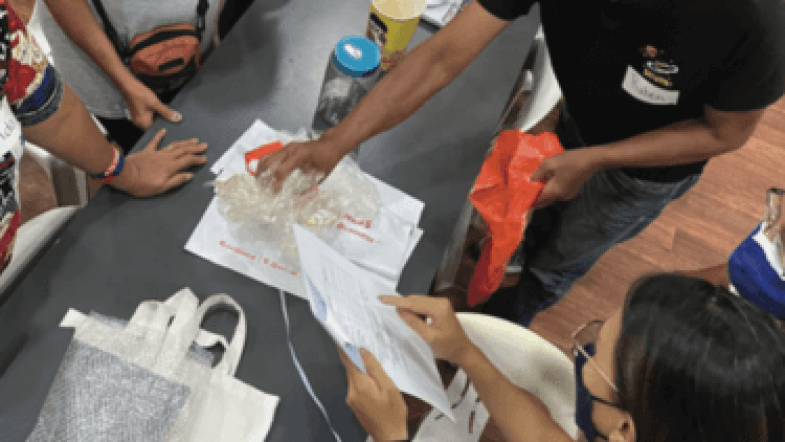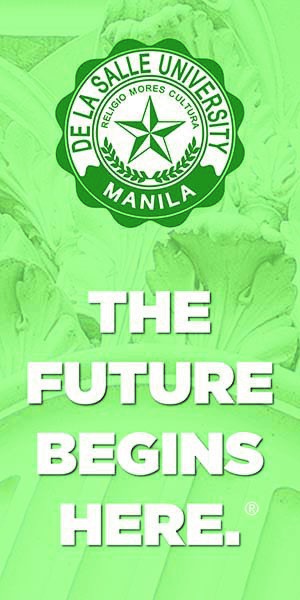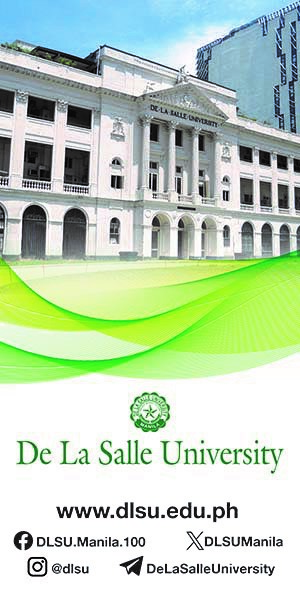
Biology associate professor Dr. Chona Abeledo and her team of researchers launch a community initiative to understand the makeup of plastic waste in Pasig River.
The Pasig River Communities Against Plastic Pollution Project, also called EcoSquad Goals Initiative, is a citizen science project that seeks to identify the different types of household plastic wastes that end up in our waters. The proponents believe that identifying the predominant types of plastic wastes will result in more effective and sustainable solutions to address water pollution.
As in any citizen science project, volunteers are at the heart of data gathering. The researchers had to ensure that their volunteers are adequately trained to document instances of pollution, assess the types and amount of plastic wastes found in the river, and consolidate all pertinent information in a database.
So far, the data being collected have given the researchers an invaluable snapshot of what kinds of waste flow through the Pasig River, providing them ideas about potential sustainable interventions.
An online initiative
The project started during the lockdown days of the pandemic, when Abeledo’s team, consisting of Abeledo and a group of DLSU Biology graduate students, joined a UNESCO project calling
for youth involvement in projects about circularity.
Concerned about the Philippines being the third highest contributor of plastic pollution in the world’s oceans, the team sought solutions at the most basic level. Their initial project was to create a set of modules to teach school children how to identify the different types of plastic waste in their own homes.
They enlisted Br. Alfred Shields Ocean Research Center (SHORE) Director Dr. Wilfredo Licuanan, College of Computer Studies faculty member Courtney Ann Ngo, and Communications Professor Dr. Angeli Diaz for help in creating an interface for information collection.
The resulting online project got the attention of the United Nations Development Programme (UNDP), which then called on the group to do a face-to-face version in selected barangays in Pasig City, near the river.
The team took on the challenge. They were given only three months to complete a scaled up version of their online project. This meant an extra 16 hours of their usual training workshops, which had the added element of being conducted in person.
“From working with children online, we started working with local government units and whole barangays, to design the face-to-face version of the project,” Abeledo recalls.
Implementing citizen science
The first phase with UNDP involved several focused group discussions with the different partner communities. In the second and third months, workshops were held to teach participants more about plastic use, problems, as well as plastic waste issues around the world. In the fifth month, the volunteers started uploading their own data from the one kilogram plastic waste they collected from the river four times a month.
Apart from developing citizen science skills, the team hoped for something more for the volunteers—an awareness of consumer behavior and the negative impacts of single use plastic. These, they believe, are knowledge that will facilitate sustainable life practices.
A unique approach on plastic pollution
Abeledo observes that a lot of initiatives to combat plastic pollution involve plastic waste collection, such as coastal cleanups and recycling events in barangays, malls, and schools. But the effect, she admits, is limited by the fact that different types of plastics need to be recycled in different ways, and more often than not, there is a lack of facilities to deal with all the collected plastic waste.
This is why even though the funded portion of the project is over, the team has continued to train people as citizen scientists.
“At the end of the day, our efforts are never enough to collect the amount of data that we require. We need as many people as possible to collect data so that it can keep trickling into our database even though we don’t have the funding anymore. We are now focusing on training the trainers. We started with teachers from PUP and Xavier School, and are now working with institutions from different parts of the country,” Abeledo says.
A river of hope
The Pasig River is vital in its provisions to local citizens and industries as well as in its role as connector of two other important bodies of water, Laguna de Bay and Manila Bay. Various local government units and NGOS have time and again exerted efforts to revive its overall quality and tributaries, but plastic waste still continues to contaminate it and threaten the waters and communities connected to it.
Abeledo hopes that the recent passage of the Extended Producer’s Responsibility (EPR) Law, can be the start of lasting change for Pasig River. With EPR, companies will be legally responsible for the plastic packaging throughout the lifecycle of their products. There may soon be a need for them to start investing in recycling facilities. This served as a boost for the team to double up on serving data that can provide a basis for the kinds of recycling facilities that businesses will acquire.
Along with this, the team also worked on a guide for local government units about the dominant type of plastic wastes in rivers, so that there can be community-wide initiatives on reusing, recycling, or repurposing these materials.
For the EcoSquad Goals team, doing “good science” in the Philippines requires a certain amount of investment, whether in terms of money or time. They have confidence that lasting impact on plastic pollution will come with the constant involvement of citizen scientists, not only as knowledge collectors, but also as advocates of a sustainable, eco-conscious lifestyle.
Contact: Dr. Chona Abeledo | chona.abeledo@dlsu.edu.ph













